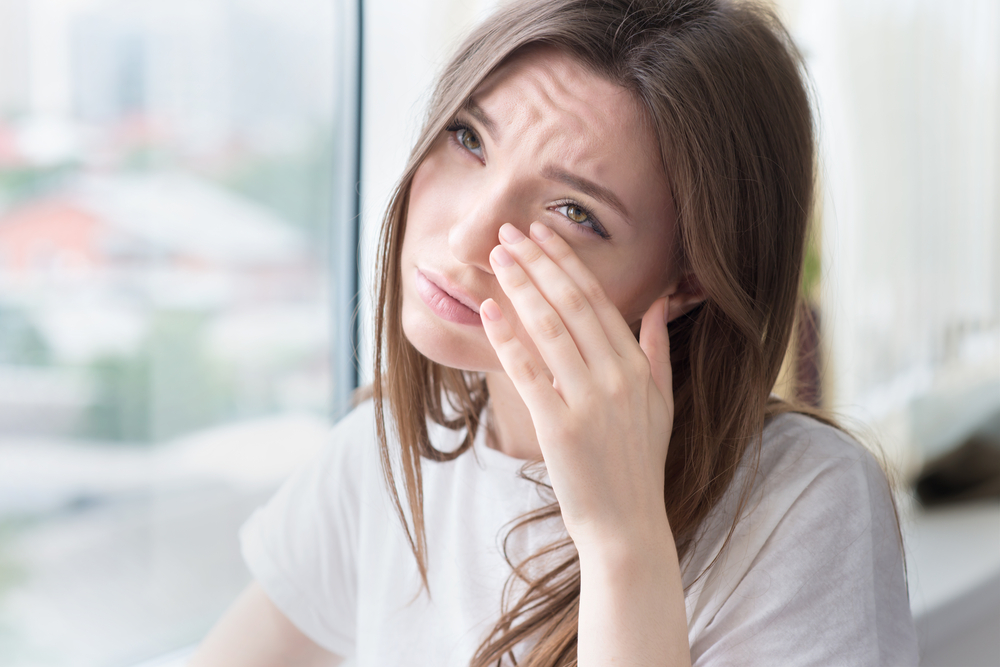
When the seasons change, many of us start to experience uncomfortable symptoms such as itchy, watery eyes, and frequent sneezing. While it's easy to assume that these symptoms are a result of seasonal allergies, it's important to recognize that they could also be caused by a condition known as dry eye.
Dry eye is a common condition that occurs when your tear glands don't produce enough tears, or the tears evaporate too quickly. This can cause a range of symptoms, including irritation, redness, and a gritty sensation in the eyes. On the other hand, seasonal allergies are triggered by environmental factors, such as pollen, mold, and dust mites. These allergens can cause inflammation in the eyes, leading to similar symptoms as dry eye.
Understanding the differences between these two conditions is crucial when it comes to seeking appropriate treatment and managing your symptoms effectively. In the following sections, we will delve deeper into the symptoms, causes, and treatments for both dry eye and seasonal allergies.
Understanding Dry Eye Symptoms
Dry eye symptoms can vary from person to person, but some common signs to watch out for include:
A persistent dry, scratchy, or burning sensation in the eyes
Redness and irritation
A feeling of grittiness or the sensation of having something in your eye
Blurred vision or difficulty focusing
Sensitivity to light
Excessive tearing or watering of the eyes as a compensatory response to dryness
These symptoms can be exacerbated by certain factors, such as exposure to dry air, prolonged screen usage, or wearing contact lenses. It's important to note that dry eye can also be a chronic condition, meaning that it can persist for a long period of time and may require ongoing management.
Recognizing Seasonal Allergy Symptoms
Seasonal allergy symptoms are typically triggered by exposure to allergens in the environment, such as pollen, mold spores, or dust mites. Some common symptoms of seasonal allergies include:
Itchy, watery, or red eyes
Sneezing
Runny or stuffy nose
Itchy throat or ears
Postnasal drip
Coughing or wheezing
While these symptoms can be similar to those of dry eye, they can often be distinguished by the presence of other allergy-related symptoms, such as sneezing or a runny nose. Additionally, seasonal allergy symptoms tend to be more prevalent during certain times of the year, whereas dry eye symptoms can occur year-round.
Dry Eye vs Seasonal Allergy
Although dry eye and seasonal allergy symptoms can be similar, there are some key differences that can help you determine which condition you may be experiencing. One of the main differences is that dry eye is typically caused by an issue with tear production, while seasonal allergies are triggered by allergens in the environment.
Another distinguishing factor is the presence of other allergy-related symptoms. If you're experiencing sneezing, a runny nose, or itchy ears along with your eye-related symptoms, it's more likely that you're dealing with seasonal allergies rather than dry eye.
Lastly, the timing of your symptoms can also provide some clues. If your symptoms are more prevalent during certain times of the year, such as spring or fall, this could indicate seasonal allergies. On the other hand, if your symptoms persist year-round, dry eye may be the culprit.
Common Causes of Dry Eye and Seasonal Allergies
There are a variety of factors that can contribute to the development of dry eye and seasonal allergies. Some common causes of dry eye include:
Aging: As we age, our tear glands produce fewer tears, increasing the risk of dry eye
Hormonal changes: Hormonal imbalances, particularly in women, can affect tear production
Environmental factors: Exposure to dry air, smoke, or wind can cause tears to evaporate more quickly
Screen usage: Prolonged use of screens can lead to a decrease in blinking, which can cause tears to evaporate more quickly
Medications: Certain medications, such as antihistamines, can cause dry eye as a side effect
In contrast, seasonal allergies are typically caused by exposure to allergens in the environment. Some common allergens include:
Pollen: Trees, grasses, and weeds release pollen, which can trigger allergic reactions
Mold spores: Mold growth in damp areas, both indoors and outdoors, can release spores that cause allergies
Dust mites: These microscopic creatures live in household dust and can trigger allergic reactions
How to Determine if You Have Dry Eye or Allergies
If you're unsure whether your symptoms are due to dry eye or seasonal allergies, it's important to consult with an eye care professional. They can perform a thorough examination and may conduct tests to determine the cause of your symptoms. Some tests that may be performed include:
Schirmer's test: This test measures the amount of tears your eyes produce and can help diagnose dry eye
Allergy testing: Skin testing or blood tests can be conducted to identify specific allergens that may be causing your symptoms
By identifying the root cause of your symptoms, your eye care professional can recommend the most appropriate treatment plan.
When to Consult an Eye Care Professional
If you're experiencing persistent eye-related symptoms, it's important to consult with an eye care professional. They can help determine the cause of your symptoms and recommend the most appropriate treatment plan. Additionally, if your symptoms worsen or do not improve with over-the-counter treatments, it's crucial to seek professional advice.
Conclusion
Understanding the differences between dry eye and seasonal allergies is essential for effectively managing your symptoms and seeking appropriate treatment. By recognizing the signs of each condition and consulting with an eye care professional, you can find relief and maintain optimal eye health. Remember to pay attention to your symptoms, be aware of environmental factors that may trigger or worsen your condition, and follow your eye care professional's recommendations for treatment and management.
For more information on dry eyes vs seasonal allergy symptoms, visit Eye Co. at our office in Columbus, OH. Call (234) O-H-Eye-Co to discuss any questions with our team of experts or to schedule an appointment today.








